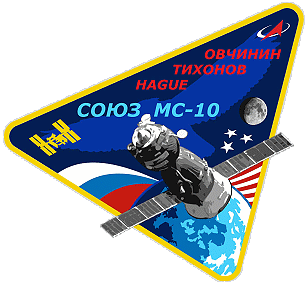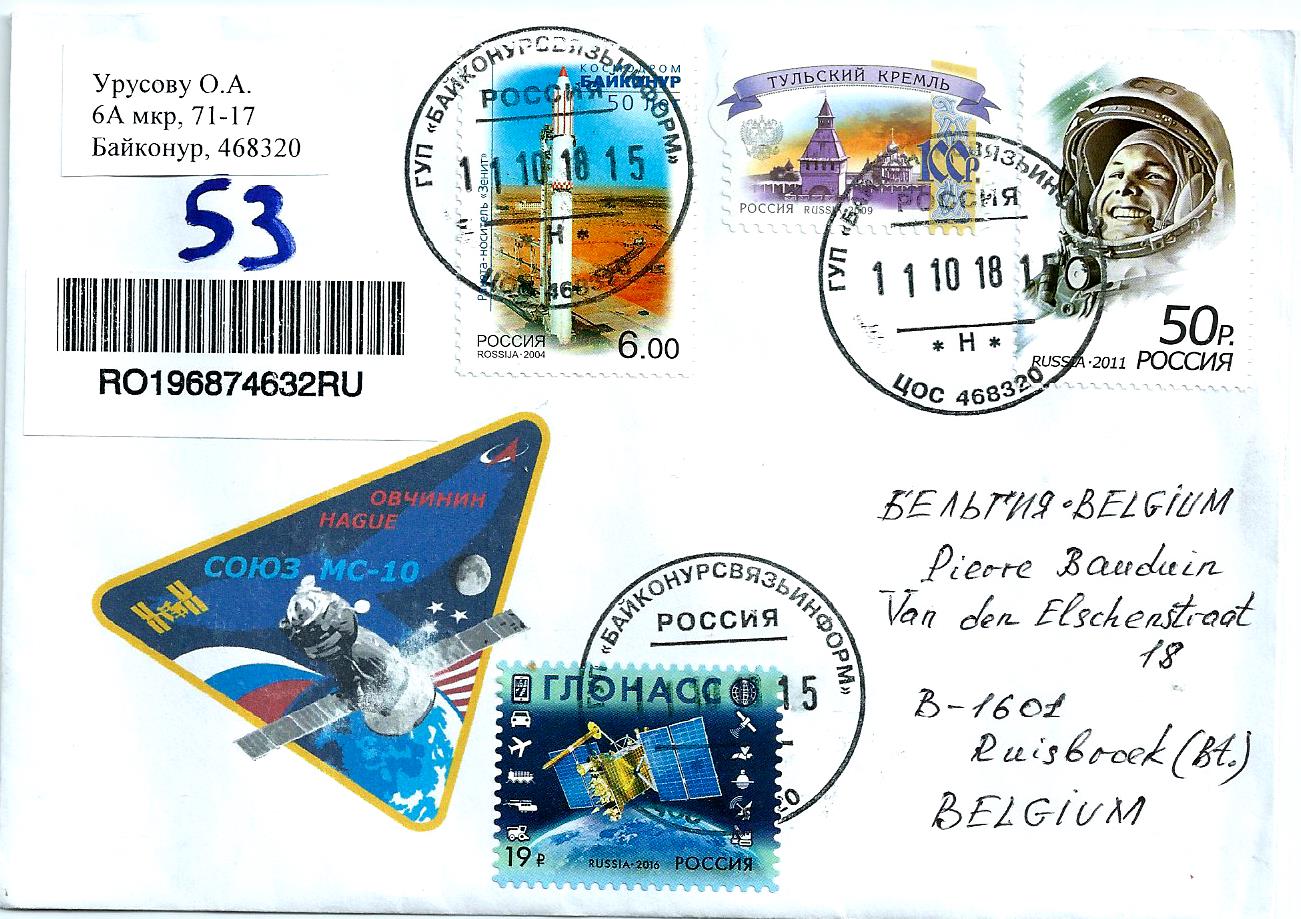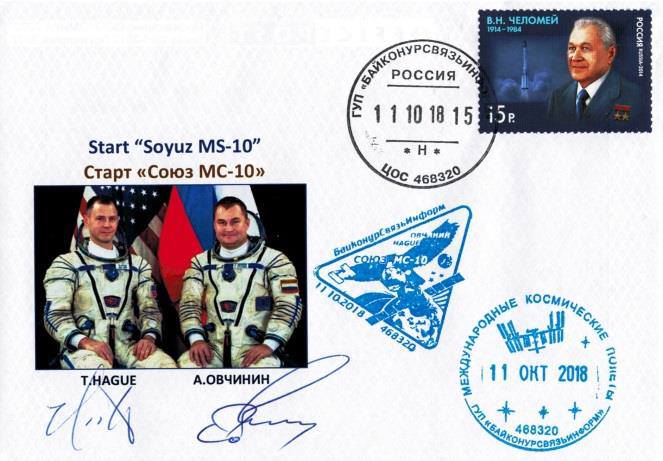Launch, orbit & landing data:
| Designation | F01526 / 18F01 |
| Launch date - time | 11 Oct 2018 - 08:40:15 UTC 2:40 pm local time |
| Launch site | Baikonur, LC1/5 |
| Launch vehicle | Soyuz-FG (#xx) |
| Soyuz designation | 11F732A48 nº740 |
| Mass (kg) | kg |
| Altitude (apogee) | 93 km |
| Inclination | 51.6° |
| Landing date - time | 11 Oct 2018 - 08:59:56 UTC |
| Landing location | 47°35′08"N, 68°00′25"E 20 km E of Dzhezkazgan |
| Flight Duration (d:hr:min) | 19m 41s |
| Nbr orbits | 0 |
| Landing crew | Launch crew |







